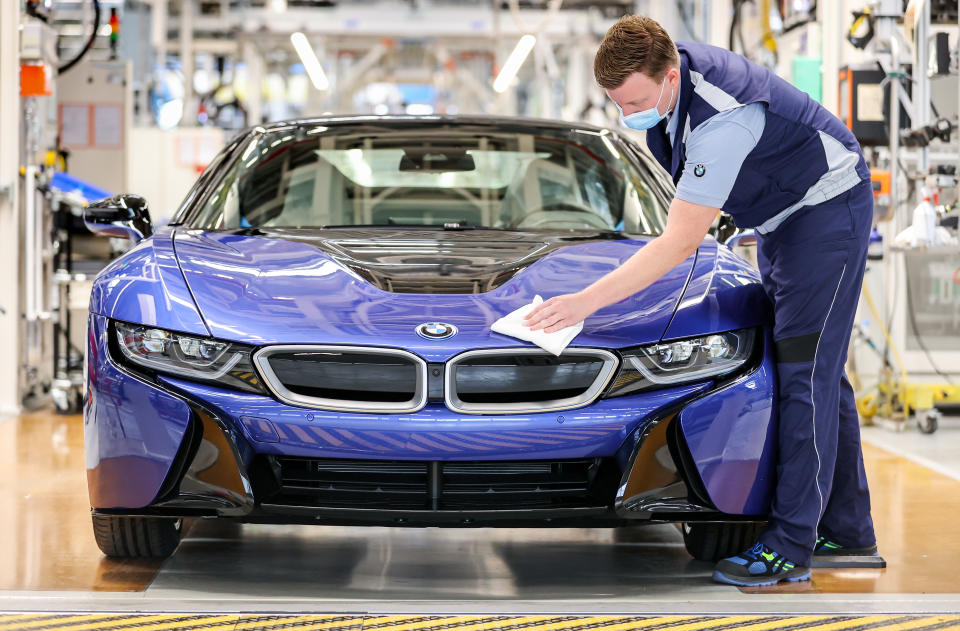Coronavirus: BMW sales plunge nearly 25% in second quarter

Premium German automaker BMW (BMW.DE) sold 25% fewer cars in the second quarter than in the same period last year, as plant closures and dealership lockdowns due to the coronavirus pandemic took their toll.
The Bavarian car manufacturer said on Tuesday that it sold 485,701 vehicles between April and June. Mini sales were down by just over 38%, while sales at the core BMW brand fell by a little over 23%. The biggest loser in the BMW stable was Rolls-Royce, where sales in the quarter slumped nearly 47%.
Over the first half of the year, the group’s sales were down 23% from last year.
On the bright side, BMW said that the sales slide had been counteracted by a 17% uptick in sales the Chinese market in the quarter.
“We see a positive development in China, where our sales in the second quarter were already higher than in the previous year,” said Pieter Nota, the management board member responsible for customer, brand and sales.
READ MORE: Tentative restart to UK car market in June
Sales of clean-energy cars, including plug-in hybrids and the new fully-electric Minis, were the most resilient during the tough second quarter, falling by 4.9%. However, these electric vehicles only account for less than 7% of the carmaker’s entire group sales.
BMW is not alone in seeing sales plunge due to the COVID-19 pandemic. The coronavirus forced global carmakers to a halt in April and May, as supply chains splintered as country borders closed to contain the outbreak and customers in lockdowns stopped buying cars.
Germany’s big three — Volkswagen (VOW3.DE), Daimler (DAI.DE) and BMW — were forced to put hundreds of thousands of workers onto short-time (Kurzarbeit) hours, and are still waiting for demand for new cars to pick up again. Audi (NSU.DE), Daimler, and BMW are all planning to cut thousands of jobs in the next few years, in part to help cut costs to fund the switch to e-mobility.
READ MORE: German car industry warns of job losses due to ‘unprecedented slump’ in the market
Hildegard Müller, president of the German Automotive Industry Association (VDA) said last week that Germany’s short-time work programme, where the government pays 60% of workers’ salaries to avoid layoffs, won’t be enough to prevent redundancies in the automotive industry, despite the government’s stimulus measures.
“The slump in the market is unprecedented in its scale and global scope,” Müller said.

